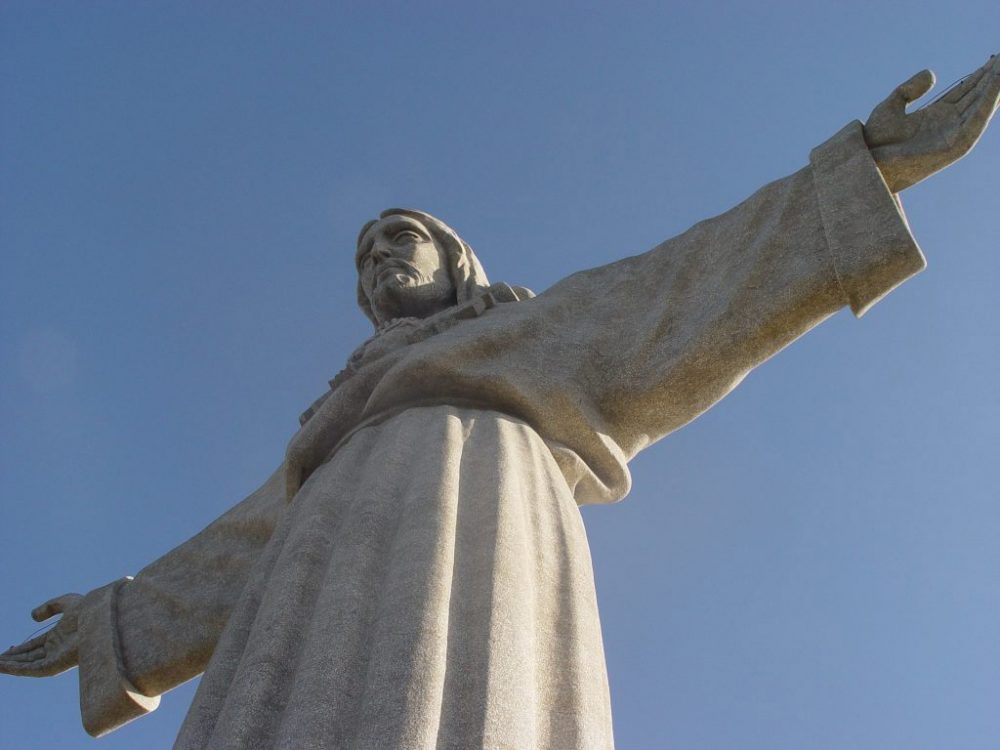Fr Paolo Consonni, MCCJ
Some lives do go wrong. A combination of bad circumstances, bad company, and bad choices can lead some to face death in misery and shame, like the two criminals crucified with Jesus. In this year’s Solemnity of Christ the King, the Gospel (Lk 23:35-43) describes His final dialogue with them.
For those two wretched men facing death, there should have been nothing more to be said or done. The sentence of Pilate in the name of the Emperor of Rome definitely sealed their fate.
But, unexpectedly another person, Jesus of Nazareth, was crucified with them. The soldiers put an inscription upon His cross which read “This is the King of the Jews,” intended to mock him. But everybody could see that Jesus’ attitude on the cross was regal indeed. No hateful words came out of His mouth, only forgiveness. He kept praying to God, even in his torment of pain, addressing Him as Abba, Father.
One of the criminals joined the crowd in deriding Jesus, hoping He would come down from the cross and save them. But the other criminal realized that Jesus, though innocent, was clearly “choosing” to remain on the cross and carry on His body the sins of the world, including the sins of the repentant thief. He perceived that that love was stronger than evil and death, stronger even than those who believe it is necessary to have power to govern history, but who are in fact puppets in the hands of the dark forces.
Could Jesus’ love and mercy redeem the thief’s wasted life? Wasn’t this his last chance to give meaning and hope to a life of failures? The criminal we now call “the good thief” took courage and said, “Jesus, remember me when you come into your kingdom.” Jesus’ reply was truly majestic: “Truly I tell you, today you will be with me in Paradise.”
Two criminals, two wasted lives, two final choices: to die in desperation or to entrust oneself and one’s dark past to Him who can fulfill the good destiny for which we were created. Life might go wrong, but even at the last moment, the possibility to fulfill it remains. We are called to make this choice every day of our lives.
For the past few years, I have been a privileged witness of the redeeming power of Christ when visiting the inmates of the Coloane Prison. I first joined the former group of Catholic volunteers organized by the Community of the Beatitudes. Recently this service has been integrated into the Diocese of Macau under the name St. Maximilian Kolbe Prison Ministry (聖高比更生福傳服務團). Special permission has been granted to this organization to hold monthly group encounters, both in Chinese and in English. In the limited amount of time available, the volunteers proclaim a passage of the Word of God, explain it, pray together with the inmates for their needs and those of their families. In addition to working with the group, some volunteers conduct individual visits.
Nowadays, because of the pandemic, the group cannot hold meetings in person, but the Correctional Services Bureau has offered the possibility of organizing meetings online through the facilities of the Bureau. To meet on screen, is not as warm as it is to meet in person, but the Holy Spirit works even within the limitations of technology.
Life in prison is quite challenging. To be far away from one’s family and loved ones is often times unbearable. But for some of them, the time spent in prison has been important in order to understand their mistakes and to re-evaluate their choices. The prison has also become the “temple” where some of the inmates find God.
“When I was outside, I didn’t know the value of my life, of my family, of my work. I never paid attention to God. Now, I have lost everything. But here, behind bars, He finally met me. He accompanies me in this time of darkness. He sees beyond my mistakes, and He wants me to start anew. He gives me hope that the present difficulties will help me to become a better person and live more purposefully, starting now, in my prison cell. Through God, I experience an inner freedom that nobody can take away”: this is what many inmates, with similar words, shared with us volunteers during our encounters. Christ can indeed establish His reign even within prison walls.
We usually measure the value of one’s life through one’s successes. Through the experiences of those inmates. I, however, understood that in spite of our mistakes, our life can become truly fulfilling and meaningful only when we eventually encounter the One who can redeem every aspect of our existence, including sin, failures, pain, and death. That is God’s Kingdom. No circumstance is too dark to deter Christ from inviting us “to reign with Him” (2 Tim. 2:12), not a hospital bed, nor a broken family or a moral misstep. He only needs our consent and our endurance: ask Him, as the “good thief” did.


 Follow
Follow


